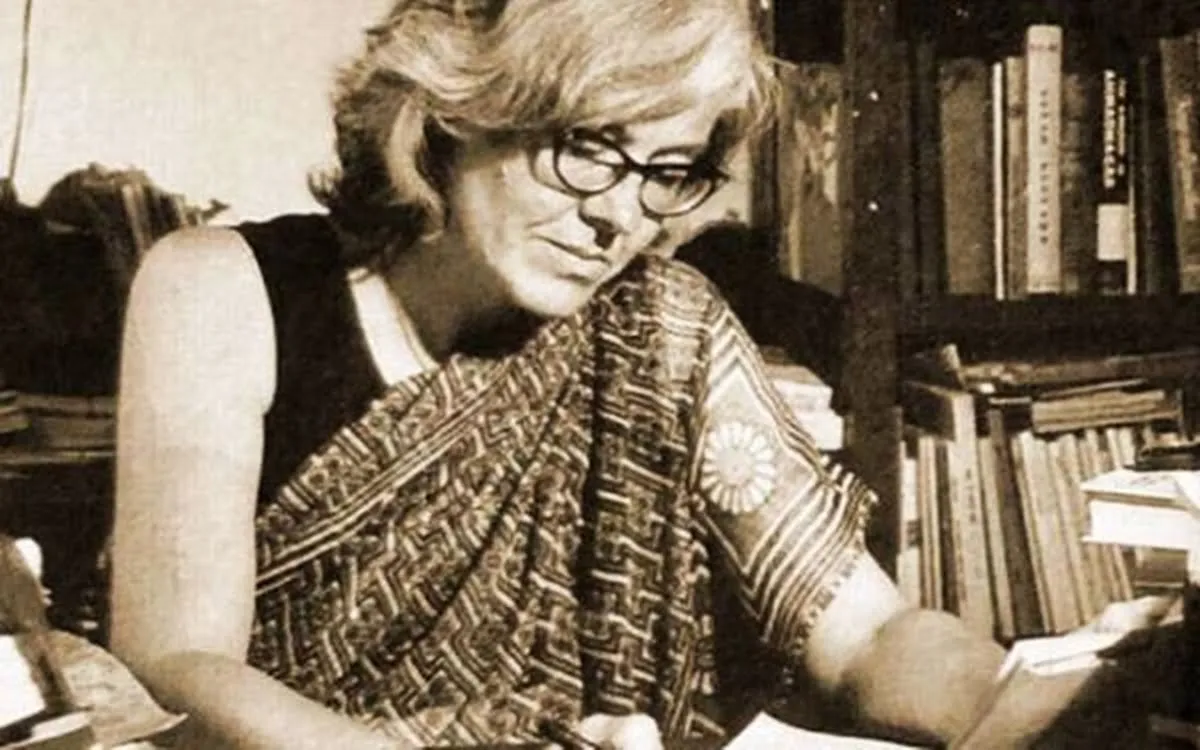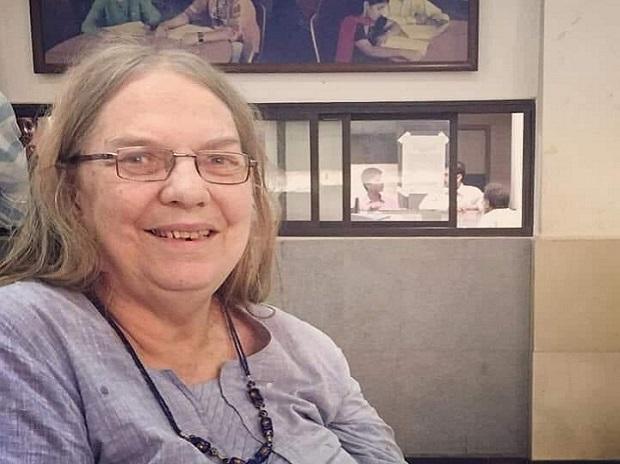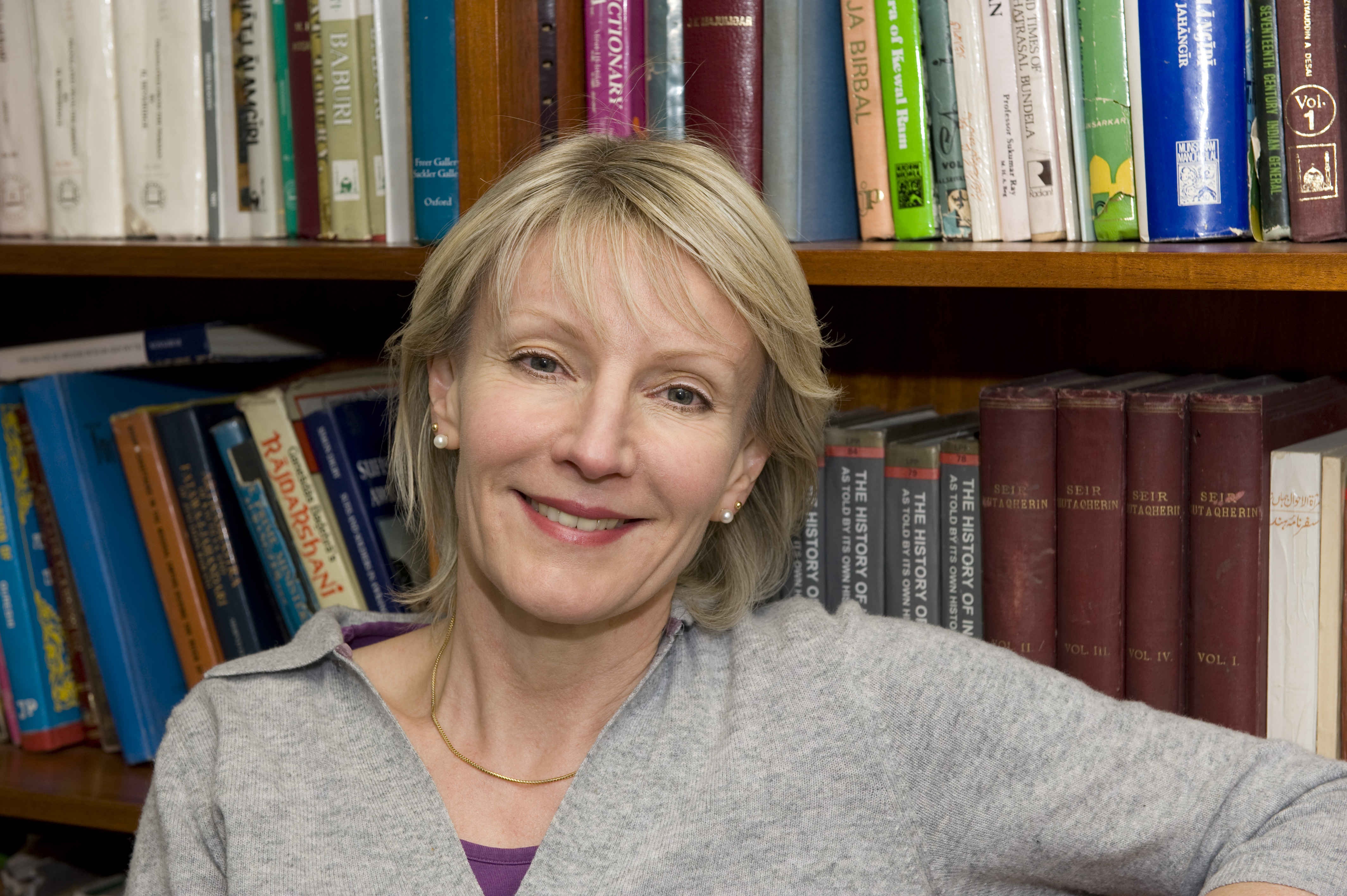Contribution of Three Foreign Feminist Scholars in Phule-Ambedkarite Historiography
.png)
In the expansive yet selective terrain of Indian historiography, the contributions of anti-caste reformers like Mahatma Phule, Savitribai Phule, and Dr. B.R. Ambedkar have long remained sidelined, especially in mainstream academic and feminist discourses. Contribution of Three Foreign Feminist Scholars in Phule-Ambedkarite Historiography, written by Dr. Lata Pratibha Madhukar, offers a compelling corrective to this erasure by spotlighting the profound work of three pioneering foreign feminist scholars—Eleanor Zelliot, Gail Omvedt, and Rosalind O’Hanlon. With intellectual rigour and empathetic inquiry, these scholars not only uncovered hidden narratives of the Bahujan, Shudra, and Dalit women’s struggles but also helped construct a globally recognised anti-caste feminist historiography rooted in oral histories, lived realities, and intersectionality. Dr. Lata’s article is both a tribute and a critical engagement with their legacy, showing how these scholars bridged continents and castes to illuminate a radical tradition of social justice that deserves a central place in India’s academic and cultural consciousness.
During the colonial era, India witnessed cultural reform, cultural revolution and political revolution. While substantial literature was produced on mainstream social reformers and nationalist movements, the cultural revolutionary contributions of figures who resisted caste and gender oppression remained unacknowledged for decades. Notably, three foreign feminist scholars—Eleanor Zelliot, Gail Omvedt, and Rosalind O'Hanlon—played a pivotal role in discovering, documenting and writing the voices of rebellion from the oppressed Bahujan Shudras and women’s movements, bringing them into international academic discourses and recognition in all disciplines of the humanities.
Dr. Lata P.M., a Bahujan satyashodhak feminist researcher, Writer, trainer, guest faculty and veteran activist in the people's movement, tried to explore here the contribution of these three feminist scholars from abroad. Lata tried to search for intersectionality between these feminist scholarships that bridged the historical gap and brought global visibility to the Phule-Ambedkarite anti-caste Bahujan feminist discourse in the so-called mainstream. Lata P.M. brought out here the highlights of the research of these three scholars to introduce India a true renaissance and enlightenment period for women started from Mahatma Phule and Savitribai Phule 's' pioneering interventions for women's and Shudra's education ends to Ambedkar who burnt Manusmruti and gave the constitution to reclaim this enlightenment through legal human rights.
Eleanor Zelliot

The renowned American young researcher Mallory Henniger writes that Dr. Eleanor Zelliot is considered the first among modern American scholars to begin studying Dr. B. R. Ambedkar and Ambedkarites.
But in academia, more than that, she is remembered as an Ambedkarite writer, a fellow activist, and for her distinctive contribution among other foreign research scholars for her commitment to giving voice to the grassroots peoples' revolts in the Dalit movement, unheard of earlier.
Eleanor Zelliot (7 October 1926 – 5 June 2016) was an American historian, professor, and author, an expert on India, South-West Asia, Vietnam, Asian women, and anti-untouchability movements—especially on Dr. B. R. Ambedkar and the Dalit movement.
She earned her Ph.D. from the University of Pennsylvania in 1969, where she focused her research on Dr. B. R. Ambedkar, considered the first doctoral dissertation on the anti-untouchability movement in India.
Academic and Professional Contributions From 1969 to 1997, she taught history at Carlton College, Minnesota, and co-founded the Department of South Asian Studies. She wrote more than 80 articles on topics ranging from the anti-untouchability movement, the Namantar movement, medieval saint-poets, the Ambedkar-inspired Buddhist conversion movement, Marathi Dalit literature, and Dalit feminism, and she edited three books.
Translation and Collaboration: She translated Marathi Dalit poetry, such as poems by Keshav Meshram and Namdeo Dhasal, and co-edited the book “An Anthology of Dalit Literature” with Mulk Raj Anand.
Achievements and Impact: Her scholarship on Ambedkar and the Dalit movement established her as a respected Ambedkarite thinker. Her books and articles helped to present the history of the Dalit movement from a global perspective.
Death and Legacy: Eleanor Zelliot passed away on 5 June 2016 in Minnesota at the age of 89. Her work continues to give life to the voices of marginalised communities through both research and content. As an American resident and university professor-historian, she first visited India in the 1960s. Initially, she worked on Indian medieval saint traditions, but later focused on Dr. Babasaheb Ambedkar, the Dalit movement, and Buddhist conversion.
Her essay collection From Untouchable to Dalit presents the historical saga of the origin, transformation, and struggle of Dalit identity. Eleanor examined not only political aspects but also cultural and ideological dimensions. She conducted in-depth studies of Dalit women, rural leaders, cultural creators, and Ambedkarite writers. She often stayed in the homes of Dalit activists, attended Dalit Panther meetings, and travelled to rural Maharashtra to engage directly with Ambedkarite Buddhists to strengthen her research. Her writings also highlight symbols of the movement, such as Ambedkar's image, the blue flag, and statues of the Buddha. Where Indian historians often rely heavily on documents and elite sources, Eleanor prioritised oral history traditions, folk memory, and lived experiences in her historiography. Her commitment was not merely academic—she was emotionally deeply influenced by the Ambedkarite movement and acted as a strong bridge between India’s grassroots social realities and the Western academic world. Because of her, anti-caste consciousness began to rise in academic circles in the West regarding Dalit literature and Ambedkar’s contributions to economics, political science, history, religion and culture, law and constitution.
Gail Omvedt (2 August 1941 – 25 August 2021)

Gail Omvedt, a resident of Minnesota, first came to Nagpur in connection with her Ph.D. studies. During her research, she realised that the contributions of Bahujan and feminist history had not been clearly acknowledged by historians. As a result, she became acquainted with the progressive movements of the 1970s—Marxist, Phuleite, Ambedkarite, and feminist movements in India, as well as with their activists and leaders. Particularly, she was inspired by women leaders like Indutai Patankar from the Patankar family, who played key roles in the Patri Sarkar movement that emerged in western Maharashtra. This meeting culminated in her acquaintance and eventual marriage to Dr. Bharat Patankar, Indutai's son. Leaving Minnesota behind, she settled in a remote Indian village in a farmer’s family. Living in Kasegaon, she engaged in tireless historical writing, documentation of oral histories and active involvement through the Shramik Mukti Dal and the Stree Mukti Sangharsh, which advocated for land and homes ownership in the names of single women, women farmers from poor families—an example of her strong grassroots connection. Dr. Bharat Patankar himself is a doctor of medicine, also an environmentalist, known for the just distribution of water resources and management.
Gail wrote several books in English, Marathi and more than a hundred research articles in English and Indian languages on the cultural revolution led by non-Brahmin men and women leaders and of the Satyashodhak tradition, as well as on 20th-century Dalit, OBC, peasant, and women’s movements. These writings are now used in women’s studies departments and other disciplines as references and research materials in university syllabus.
Her key work, Cultural Revolt in a Colonial Society: The Non-Brahman Movement in Western India, 1873–1930, is considered a historical document. It is regarded as the first extensive historiography of anti-caste traditions, including Phule, Shahu, and Ambedkar. In this book, she established that the anti-caste struggle was as crucial and central as the freedom movement. Her research showed that Brahminism operated not only in rituals but also widely through institutions such as schools, bureaucracy, temples, and historiography, systematically denying women the right to education and a life of dignity.
Gail has given a distinct research methodology to the western academic world as she learnt from local Indian rural folk tradition to preserve knowledge from generation to generation. She learnt the Marathi language and deeply studied its original sources. She unearthed many previously undocumented documents. As an activist in the women’s, peasant, and environmental movements, she recorded vivid interviews of social workers and conducted extensive field-based oral research that was academically validated.
Gail Omvedt integrated Western theories and methodologies with Maharashtra’s folk traditions and lived experiences, thus developing a strong Bahujan discourse. Her writing was not just theoretical but based on practical, action-oriented (praxis) experiences. Some of her important works include: Breaking the Shackles—a chronicle of the modern autonomous women’s movement—and Seeking Begum Pura, which is based on Saint Ravidas’s vision of a human society of freedom and harmony. Through her literature, Gail Omvedt conveyed countless voices dreaming of a boundary-free, loving, and just society. Her vision was to break prisons, in her life she broke several taboos, patriarchal practices and the symbols of slavery. Her whole life she has given for revealing the voices of the cultural revolution, creating a new symbol of integrity of two different worlds, like Western and Asian. She merged with the soil of Kasegson in rural Maharashtra, India, on 25 August 2021.
Rosalind O’Hanlon

Around 1978, Rosalind O’Hanlon came from Britain to India, just like the other two scholars, to study the social and cultural revolutions that had taken place here. Coming from the very country against which India had rebelled for its independence, she was eager to understand the internal social bondage within Indian society. She conducted in-depth research on Mahatma Phule, Savitribai Phule, and the Satyashodhak Samaj—leaders and movements that fought against such bondage and challenged casteism. Her research journey was also supported by the earlier works of Eleanor and Gail. Rosalind from Oxford is very much connected to the anti caste movement through her latest books, written like Lineages of Brahman Power: Caste, Family, and the State in Western India, 1600–1900, a book published recently.
Her much-discussed first book, 'Caste, Conflict and Ideology', provides a detailed and in-depth study of the 19th-century Satyashodhak movement's ideology, struggles against caste-based inequality, and the rise of knowledge-seeking movements among women and Shudras against the dominant cultural knowledge system. Her work is studied internationally.
Rosalind brought to light the work of many figures who had been ignored or left undocumented, such as Muktabai Salve, Fatima Sheikh, missionary doctor Pechey Phipson, and Munshi Ghaffar Beg. She was greatly influenced by the Satyashodhak movement of Mahatma Phule and conducted fieldwork in many remote parts of India. She incorporated her findings into Bahujan, secular, and culturally rich historiography. Today, as inclusive and intersectional approaches gain importance in women’s studies, Rosalind’s contribution in laying the foundation for such methods is recognised as significant.
Her research revealed that the cultural movement for social justice was not limited to Hindu Dalits alone; Muslims, Christians, and backwards caste/class communities in India also played active roles.
Her contributions, along with those of Gail, helped revive neglected historical truths within India’s modern historiography—an area also explored by researchers like Kamil Parkhe. Their works reawaken interconnected cultural, political, and movement-based histories. Review, Critique, and
Conclusion on the Contributions of the Three Scholars:
These three scholars shared many commonalities. All were connected to anti caste and anti-race discrimination movements and the Dalit Bahujan feminist movements in India, as well as the feminist movement in their own countries. Despite being white, all three stood with the struggles of people of colour, Dalit, backwards and were influenced by progressive, leftist ideologies globally. However, they also recognised that while Indian leftist thought emphasised class consciousness, it lacked awareness of based discrimination. These three thinkers and writers filled that gap, bringing forth caste recorded histories into documented, realistic, and oral historical narratives within India. Their narratives are totally nuanced in the field of research because of inclusion, intersectionality and in support of empathy for all humanity.
According to Gail Omvedt, Brahminical dominance prevailed in Indian historical institutions such as the Indian History Congress, Gokhale Institute, and the Peshwa archives, making it extremely difficult for non-Brahmin historians to access sources. In her book Seeking Begam Pura, she envisioned a world of joy without pain and grief as Saint Ravidas described in his poetry.
All three—Eleanor, Gail, and Rosalind—studied local sources available in Marathi, learnt rural dialect and other regional languages. They recovered oral histories and written traditions to authenticate their research with lots of references through folk songs, poems, stories, and attending literary and movement conferences.
Between 1970 to 1990, research tools were limited, transportation was scarce, roads were often absent in villages, and there were no sanitation facilities for women. Yet these three scholars tirelessly explored the lives of women, Dalits, Adivasis, and OBCs, especially uncovering the invisible contributions of women from these castes and classes. Even for the liberation of Brahmin and upper-caste women, pioneers like Savitribai Phule, Fatima Sheikh, Dr. Ramabai, and Tarabai Shinde wielded pens and books to challenge dominant knowledge systems. These three scholars were the first to provide research foundations on these figures. Their lucid language and research methods challenged the rumour-based "WhatsApp University" culture and paved the way for evidence-based historical writing.
In the discourse of Indian women’s studies, the importance of Phule-Ambedkarite, Bahujan, Satyashodhak feminist thought and research is extraordinary, and these three scholars deserve credit for this awakening. By initiating oral historiography and establishing research and compilation methods, they left behind an indelible legacy and heritage of global scholarly recognition in academia.
References:
Gail Omvedt: 1973 – Cultural Revolt in a Colonial Society: The Non-Brahman Movement in Western India, 1873–1930. 1973 – “Brahmanism of Indian Elite and Royal Libraries” — Cultural Revolt, p. 19. 1990 – We Will Smash This Prison!: Struggling Indian Women. 1994 – Dalits and the Democratic Revolution: Dr. Ambedkar and the Dalit Movement in Colonial India. 2003 – Buddhism in India: Challenging Brahmanism and Caste. Seeking Begampura
Eleanor Zelliot: 1974 – “Legitimacy of Religion and the Dalit Movement” — Contribution to Indian Sociology. 1980 – “Learning to Use Political Means: Mahars of Maharashtra” — Untouchables in Contemporary India. 1982 – “Origins of New Dalit Poetry” — Commonwealth Literature Journal. 1992 – From Untouchable to Dalit: Essays on the Ambedkar Movement.
Rosalind O’Hanlon: 1985 – Caste, Conflict and Ideology: Mahatma Jotirao Phule and the Struggle of the Lower Castes in 19th-Century Western India. 1999 – “Recovering the Subject: Subaltern Studies and Resistance in Colonial South Asia” — Modern Asian Studies. 2001 – “Gender in British Historiography of Colonial India” — Indian Economic and Social History Review. 2010 – “Letters from Home: Early 19th Century Pandits of Banaras and the Maratha Region” — Modern Asian Studies. 2025- "Lineages of Brahman Power: Caste, Family, and the State in Western India, 1600–1900 Book by Rosalind O'Hanlon Other Indian Publications: 2016 – Teltumbde, Anand. “Remembering Eleanor” — Indian Express. 2016 – Eleanor Zelliot Special Issue, Eds. Vilas Wagh, Usha Wagh — Sugawa Publications. 2023 – Collected Writings of Gail Omvedt, Compiler: Sanjay Kumar Kamble — Savitribai Phule Study Center, Pune University. (This volume includes an article by me, Dr. Lata Pratibha Madhukar.) 8. Various Years – Articles on Indian Dalit Literature, Dalit Panther Commemorative Issues, etc. ( This article is written by Dr Lata Pratibha Madhukar for the portal of MISA, online Pune)
